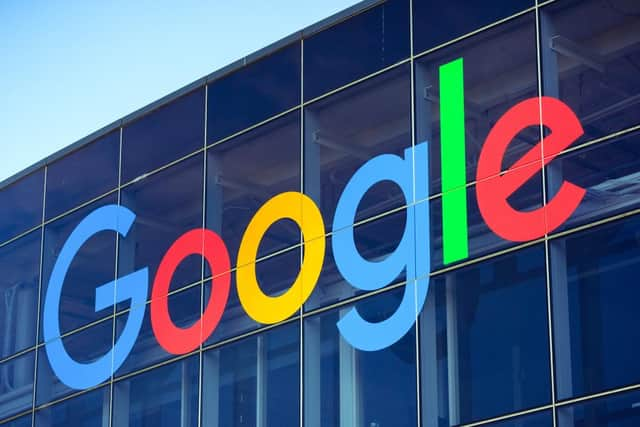Google April Fools’ 2021: why search giant isn’t posting an April Fools - and its best pranks from past years
and live on Freeview channel 276
Every year when 1 April rolls around, companies around the world release phoney and fake announcements - from Pringles claiming to launch sour cream and onion lip balm to Sky Mobile advertising a SIM tariff for pets.
Usually, Google would also partake in the fun, sharing its own fictional posts - however, for the second year in a row, the search engine giant has decided to refrain from sharing any April Fools’ posts.
Why isn’t Google sharing an April Fools’ Day post?


Advertisement
Hide AdAdvertisement
Hide AdIn 2020, most businesses and figures opted out of sharing April Fools’ Day posts due to growing concerns around the Covid-19 pandemic that was gathering speed at the time.
While April Fools’ Day 2021 has seen faux posts being shared as normal, Google has chosen to abstain from the practice once again.
In an internal memo sent by Google’s VP of global marketing, Marvin Chow, it explains that the company will continue to “pause” its April Fools’ Day pranks as “much of the world” is still dealing with the “serious challenges” of the pandemic.
The message, which was obtained by Business Insider, reads: “Throughout the past year, I have been so inspired by how helpful our products, programmes and people have been during humanity’s toughest times.
Advertisement
Hide AdAdvertisement
Hide Ad“We’ve done it with sensitivity and empathy, reflecting the range of challenging experiences so many are experiencing globally.
“As you will remember, last year we made the decision to pause our longstanding Google tradition of celebrating April Fools’ Day, out of respect for all those fighting Covid-19.
“With much of the world still grappling with serious challenges, we feel we should again pause the jokes for April Fools’ Day this year. Like we did last year, we should continue to find appropriate ways to bring moments of joy to our users throughout the year (e.g Doodles, easter eggs, etc).”
What pranks has Google shared in the past?
In previous years, Google was known for its April Fools’ Day pranks, going back to the year 2000 when it all first started.
Advertisement
Hide AdAdvertisement
Hide AdIt’s first prank in 2000, called the MentalPlex hoax, invited users to search the web by removing their hat and glasses, stare at an animated gif of a swirling red and blue circle, called the MentalPlex circle, and project a mental image of what they’re trying to find.
Whilst thinking about what they wanted to find, users then had to click the circle - they were then met with a number of humours error responses, such as “Error 666: Multiple transmitters detected. Silence voices in your head and try again” or “Error: Insufficient conviction. Please clap hands three times, while chanting “I believe” and try again”.
In 2005, Google announced “Google Gulp” which was supposedly a “smart drink” that featured a DNA scanner in the lip of the bottle that would read “all 3 gigabytes of your base pair genetic data in a fraction of a second, fine-tuning your individual hormonal cocktail in real time using our patented Auto-Drink™ technology, and slamming a truckload of electrolytic neurotransmitter smart-drug stimulants past the blood-brain barrier to achieve maximum optimization of your soon-to-be-grateful cerebral cortex.”
In 2008, Google revealed “gDay technology” which would allow users to search for content on the internet before it has been created. The tagline read “search tomorrow’s web, today!”.
Advertisement
Hide AdAdvertisement
Hide AdIts last prank that it pulled before the tech company paused them was in 2019, called Google Tulip, claimed that Google researchers, in collaboration with Wageningen University, had developed the technology to communicate with plants - specifically tulips.